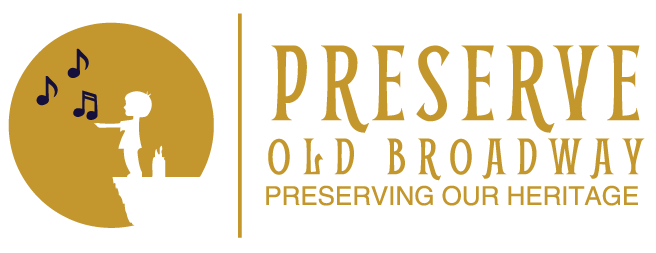The Vaudeville World of Gallagher and Shean
In our last post, we told you that we were going back to a 1941 movie to highlight a famous vaudeville team. The movie was Ziegfeld Girl (1941), and the team was made up of two vaudeville comedians who enjoyed mediocre success on their own–Edward Gallagher (1873-1929) and Al Shean (1868-1949). According to Wikipedia, “Both comedians were relatively obscure vaudeville performers before they teamed up. Gallagher and Shean first joined forces during the tour of The Rose Maid in 1912, but they quarreled and split up two years later. They next appeared together in 1920, through the efforts of Shean’s sister, Minnie Marx (mother of the Marx Brothers). This pairing lasted until 1925 and led to their fame. Gallagher and Shean remain best known for their theme song ‘Mister Gallagher and Mister Shean,’ which was a hit in the 1922 Ziegfeld Follies.”
Again, according to Wikipedia, the song stayed popular over the years; a parody was recorded by Bing Crosby and Johnny Mercer in the late 1930’s and another parody was recorded on television in 1967 by Jackie Gleason and Groucho Marx. “Each verse ended with a a question-and-answer refrain, one of which–Shean singing ‘Absolutely, Mister Gallagher?’ and Gallagher replying ‘Positively, Mister Shean!’–became their tagline.”
We remember the Pitney Bowes commercials for office equipment in the 1980’s which ended “Absolutely, Mister Pitney!”/”Positively, Mister Bowes!”
Many people attribute the constant bickering between Gallagher and Shean to be the basis for the fictional, soured relationship between two comedians, Al Lewis and Willie Clark, in Neil Simon’s hit comedy, The Sunshine Boys in 1972. After they broke up in 1925, Shean went on to become a good character actor in such films as Music in the Air (1934, playing Dr. Walter Lessing), San Francisco (1936, playing the Professor), The Prisoner of Zenda (1937, playing the exasperated orchestra leader), Rosalie (1937, playing Herman Schmidt), Too Hot to Handle (1938, playing Gumpert), The Great Waltz (1938, playing a cellist), The Blue Bird (1940, playing Grandpa Tyl) and the Ziegfeld Girl (1941, playing himself).
The plot of the movie is not terribly important in and of itself; however, it gives us an opportunity to see, among others, Lana Turner, Hedy Lamarr, Judy Garland, Jimmy Stewart, Dan Dailey, Charles Winninger, Edward Everett Horton, Tony Martin and Al Shean. First, we are going to provide a clip of the trailer for the movie, which features one of the key songs, “You Stepped Out of a Dream,” written by Nacio Herb Brown (music) and Gus Kahn (lyrics) and published in 1940.
Next, we have a clip of Charles Winninger (playing Gallagher) and Al Shean (playing himself), as they recreate the 1922 hit song, “Mister Gallagher and Mister Shean.”
Finally, we have a song, entitled “I’m Always Chasing Rainbows,” written in 1917 and introduced in the Broadway musical, Oh, Look! in 1918. Harry Carroll is credited with writing the music; however, the music is adapted from Fantaisie-Impromptu by Frederic Chopin. In the 1918 show, the song was introduced by identical twin sisters from Hungary, known as the Dolly Sisters. In the 1941 movie, Judy sings the song to her father, played by Charles Winninger. He is an old-time vaudeville actor, out of touch with the more modern shows; she is a loving daughter to him, even as he realizes that he does not fit into her world. The song is set up to capture our hearts, much as it captures the hearts of all the people in the theatre. But it had little chance to work, unless the singer could convince us that she loved her father deeply and could say as much in front of everyone without being embarrassed.

